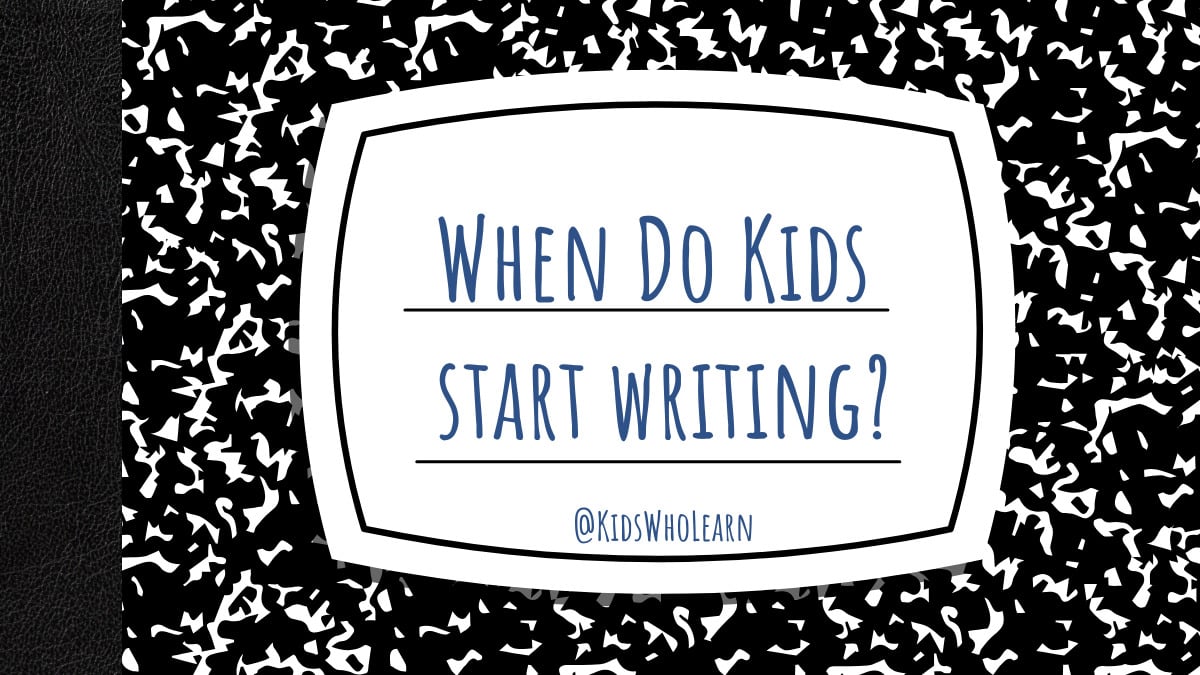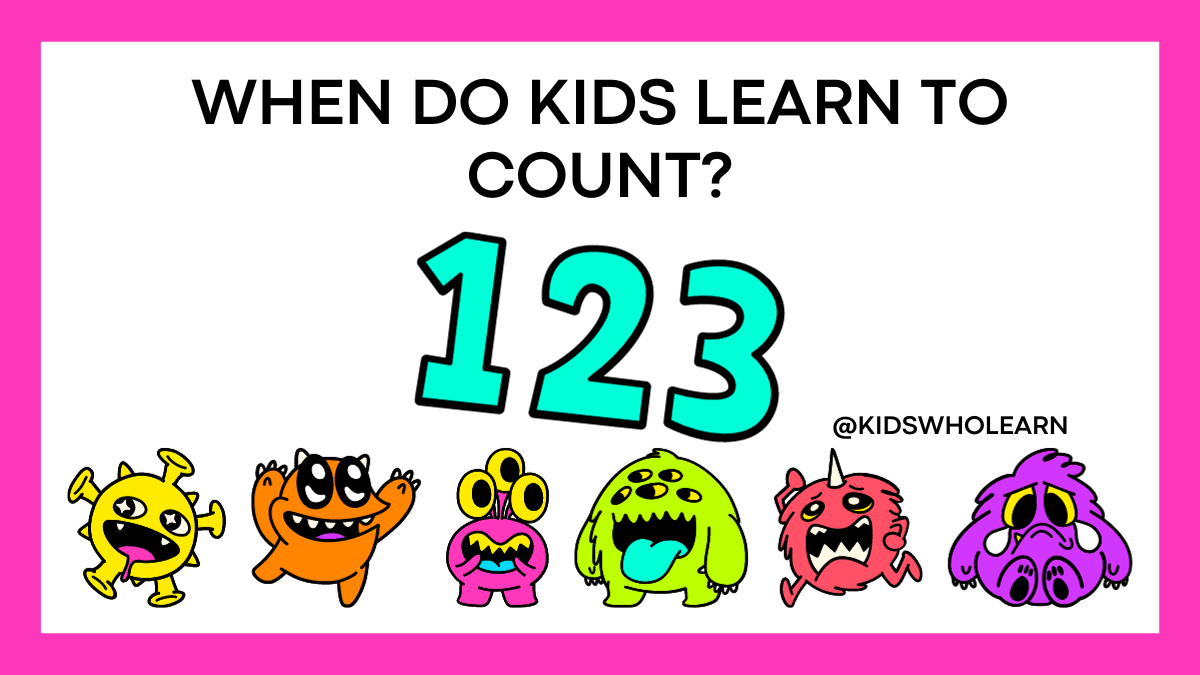Do you ever wonder when your child will start writing? As a parent, it’s natural to be curious about your child’s developmental milestones. Writing is an important skill that opens up a world of opportunities for your child. In this article, we’ll explore when children typically start writing and what you can do to encourage their development.
Writing is a complex skill that involves several different areas of development, including fine motor skills, language development, and cognitive skills. While some children may start scribbling at a very young age, most children begin to develop their writing skills between the ages of 3 and 5. At this stage, children may start to make marks on paper that resemble letters or shapes. They may also begin to understand that writing has a purpose, such as communicating a message or telling a story.
As a parent, there are many things you can do to support your child’s writing development. Providing your child with plenty of opportunities to draw, scribble, and write is one of the best ways to encourage their interest in writing. You can also read to your child regularly, as this helps to build their vocabulary and language skills. By creating a supportive and encouraging environment, you can help your child develop the skills they need to become confident writers.
The Basics of Writing
Writing is an essential skill that children learn from an early age. It’s a skill that will serve them well throughout their lives, whether they’re writing a note to a friend, composing an email, or writing an essay. In this section, we’ll cover the basics of writing, including age-appropriate writing skills and the stages of writing development.
Age Appropriate Writing Skills
Writing skills develop at different rates for different children. However, there are some general age-appropriate writing skills that you can expect your child to develop.
Preschoolers (Ages 3-5)
At this age, children are just beginning to develop their writing skills. They may start by scribbling on paper, and then progress to drawing shapes and letters. By the time they reach kindergarten, they should be able to write their name, recognize some letters, and copy simple shapes and letters.
Elementary School (Ages 6-11)
During elementary school, children develop their writing skills further. They learn to form letters correctly and write words and sentences. They also learn to use punctuation and capitalization correctly. By the time they reach fifth or sixth grade, they should be able to write a simple paragraph.
Middle and High School (Ages 12-18)
As children enter middle and high school, they develop more advanced writing skills. They learn to write longer essays and research papers, using more complex sentence structures and vocabulary. They also learn to revise and edit their work to improve its clarity and coherence.
Stages of Writing Development
Writing development is a gradual process that occurs over several stages. These stages are:
Pre-Writing Stage
In this stage, children develop the fine motor skills they need to write. They may start by scribbling on paper, then progress to drawing shapes and letters.
Early Writing Stage
In this stage, children begin to write letters and words. They may still make spelling and grammar mistakes, but they are learning to form letters correctly and use punctuation.
Transitional Stage
In this stage, children begin to write longer sentences and paragraphs. They may still make mistakes, but they are developing their writing skills further.
Fluent Writing Stage
In this stage, children are able to write fluently and accurately. They use complex sentence structures and vocabulary and can write essays and research papers.
In conclusion, writing is an important skill that children develop gradually over time. By understanding the age-appropriate writing skills and stages of writing development, you can help your child develop their writing skills and prepare them for success in school and beyond.
Factors Affecting Writing Ability
When it comes to writing, kids develop at different rates. Some start writing at a very young age, while others may not begin until they are older. There are several factors that can influence a child’s writing ability, including physical development, cognitive development, and environmental influence.
Physical Development
Physical development plays a significant role in a child’s writing ability. Fine motor skills are essential for writing, and children who struggle with these skills may have difficulty writing legibly. Some physical factors that can affect writing ability include:
- Hand strength and dexterity
- Hand-eye coordination
- Posture and grip
- Vision and visual perception
Cognitive Development
Cognitive development is another critical factor in a child’s writing ability. Children who have strong cognitive skills are more likely to be successful writers. Some cognitive factors that can affect writing ability include:
- Language development
- Memory and recall
- Attention and concentration
- Problem-solving and critical thinking skills
Environmental Influence
The environment in which a child grows up can also affect their writing ability. Children who are exposed to a variety of writing materials and experiences are more likely to develop strong writing skills. Some environmental factors that can influence writing ability include:
- Access to writing tools, such as pencils, paper, and computers
- Exposure to different writing styles and genres
- Opportunities to practice writing, such as journaling or creative writing activities
- Supportive home and school environments that encourage writing development
In conclusion, several factors can affect a child’s writing ability, including physical development, cognitive development, and environmental influence. By understanding these factors, parents and educators can help children develop strong writing skills and reach their full potential as writers.
Encouraging Writing in Children
As a parent, you may be wondering when your child will start writing. While every child is different, most children begin to show an interest in writing between the ages of three and five. Encouraging your child to write can help them develop their literacy skills and express their thoughts and ideas. Here are some tips for creating a conducive environment and incorporating fun writing activities to encourage your child to write.
Creating a Conducive Environment
Creating a supportive environment can help your child feel comfortable and confident when it comes to writing. Here are some ways you can create a conducive environment:
- Provide a comfortable writing space: Set up a writing area with a table, chair, and writing materials such as pencils, crayons, and paper. Make sure the space is comfortable and well-lit.
- Encourage creativity: Let your child write about whatever they want, whether it’s a story, a letter to a friend, or a list of their favorite things. Encourage them to be creative and have fun with their writing.
- Provide positive feedback: When your child shows you something they’ve written, be sure to provide positive feedback. Let them know that you’re proud of their efforts and encourage them to keep writing.
Incorporating Fun Writing Activities
Making writing fun can help your child develop a love for writing. Here are some fun writing activities you can try:
- Writing prompts: Provide your child with a writing prompt such as “If I could go anywhere in the world, I would go to…” and let them write about their response.
- Writing games: Play writing games such as “Write a story one sentence at a time” or “Write a story using five random words.”
- Writing letters: Encourage your child to write letters to family members or friends. This can help them practice their writing skills while also staying connected with loved ones.
- Writing journals: Encourage your child to keep a writing journal where they can write about their thoughts, feelings, and experiences.
Encouraging your child to write can help them develop important literacy skills while also having fun. By creating a supportive environment and incorporating fun writing activities, you can help your child develop a love for writing that will last a lifetime.
Common Challenges in Learning to Write
Learning to write is a complex process that involves the development of multiple skills such as fine motor skills, spelling, grammar, and creativity. While some children may find writing easy and enjoyable, others may struggle with it. Here are some common challenges that children may face when learning to write:
Handwriting Difficulty
Handwriting difficulty is a common challenge that children face when learning to write. Some children may have difficulty holding a pencil correctly, forming letters, or writing legibly. This can make it frustrating for them to write and may result in them avoiding writing altogether.
To help children with handwriting difficulty, you can try the following tips:
- Encourage them to practice writing regularly.
- Provide them with a comfortable and supportive writing environment.
- Use handwriting worksheets or tracing exercises to help them improve their letter formation.
- Use adaptive writing tools such as pencil grips or weighted pencils to help them hold the pencil correctly.
Spelling Errors
Spelling errors are another common challenge that children face when learning to write. Children may struggle with spelling due to a lack of phonemic awareness or difficulty remembering spelling rules. This can make it difficult for them to express their ideas clearly and may result in them feeling frustrated or embarrassed.
To help children with spelling errors, you can try the following tips:
- Encourage them to read regularly to improve their vocabulary and spelling skills.
- Use spelling games or exercises to make learning fun.
- Break down words into smaller parts to help them understand spelling rules.
- Use spelling and grammar checkers to help them identify and correct errors.
Creative Writing Struggles
Creative writing struggles are another common challenge that children face when learning to write. Some children may find it difficult to come up with ideas or may struggle with organizing their thoughts. This can make it difficult for them to write creatively and may result in them feeling frustrated or uninspired.
To help children with creative writing struggles, you can try the following tips:
- Encourage them to read and write regularly to improve their creativity and writing skills.
- Use writing prompts or exercises to help them generate ideas.
- Teach them how to organize their thoughts using mind maps or outlines.
- Provide them with positive feedback and encouragement to help build their confidence.
In conclusion, learning to write can be a challenging process for some children. By understanding the common challenges that children may face and using the tips provided, you can help your child develop their writing skills and build their confidence.
When to Seek Professional Help
While most children learn to write on their own, some may experience difficulties or delays in this area. If you notice that your child is struggling to develop writing skills, it may be time to seek professional help. Here are some signs that indicate you should consider seeking help:
- Your child is significantly behind their peers in writing skills.
- They struggle to hold a writing tool or form letters correctly.
- They avoid writing or become frustrated with it.
- Their writing is illegible or difficult to understand.
- They have difficulty with spelling or grammar.
If you notice any of these signs, it may be helpful to consult with your child’s teacher or a professional such as a pediatrician, occupational therapist, or educational psychologist. They can help identify any underlying issues and provide strategies to support your child’s writing development.
It’s important to note that seeking professional help does not mean your child has a disability or disorder. It simply means that they may benefit from additional support and guidance in developing their writing skills. With the right interventions and support, most children can overcome writing difficulties and become confident writers.
Conclusion
In conclusion, every child is unique and develops their writing skills at their own pace. While some children may start writing as early as two years old, others may not show interest until they are five or six years old. It’s important to remember that there is no “right” or “wrong” age for children to start writing.
Encouraging your child to write can be a fun and rewarding experience for both you and your child. Here are a few tips to help your child develop their writing skills:
- Provide your child with plenty of opportunities to practice writing, such as providing them with paper and pencils or markers.
- Encourage your child to write about things that interest them, such as their favorite animals or hobbies.
- Praise your child’s efforts, no matter how small, to help build their confidence.
- Read to your child regularly to help them develop their vocabulary and understanding of sentence structure.
Remember, the most important thing is to make writing a fun and enjoyable experience for your child. With patience and encouragement, your child will develop their writing skills in their own time.






